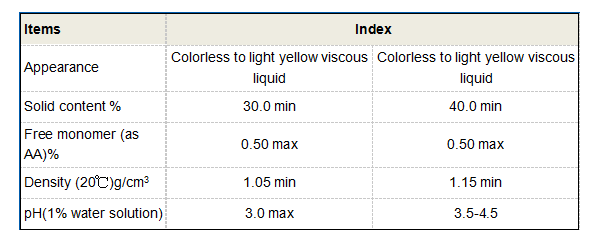Exploring Inhibitor Effects in Water Treatment Processes for Enhanced Efficiency and Safety
The Role of Inhibitors in Water Treatment A Comprehensive Overview
Water treatment is a crucial process that ensures the safety and quality of water for consumption, industrial use, and environmental protection. Amid the various technologies and methods employed in water treatment, the use of inhibitors has gained prominence due to their effectiveness in managing issues like scaling, corrosion, and biofouling. This article delves into the importance of inhibitors in water treatment, the types of inhibitors used, and their implications for water quality and system efficiency.
Understanding Inhibitors in Water Treatment
Inhibitors are chemical substances that impede a specific process, such as corrosion or scale formation. In the context of water treatment, they are employed to protect infrastructure (like pipes and tanks) and maintain water quality standards. By preventing undesirable reactions and formations, inhibitors play a significant role in prolonging the lifespan of water treatment systems and improving overall operational efficiency.
Types of Inhibitors
1. Corrosion Inhibitors These are chemicals added to water to prevent the deterioration of metal surfaces due to electrochemical reactions. Commonly used in industrial water systems, corrosion inhibitors form a protective film on the metal surface, thus minimizing damage. Common types include azoles, phosphonates, and molybdates.
2. Scale Inhibitors Scale formation, predominantly due to calcium carbonate and other mineral deposits, can severely hinder water flow and heat transfer. Scale inhibitors, such as polyacrylic acids and phosphonates, work by altering the crystallization process of scaling minerals, thereby preventing them from depositing on surfaces.
3. Biological Inhibitors These inhibitors target biological growth, primarily bacteria and algae, which can lead to biofouling. Biocides and microbiological inhibitors, like chlorine or ozone, are often used to control microbial proliferation in water bodies, ensuring the water remains clean and safe for use.
Benefits of Using Inhibitors
The incorporation of inhibitors into water treatment processes presents several advantages
inhibitor water treatment

- Enhanced Longevity of Equipment By preventing corrosion and scaling, inhibitors help extend the lifespan of water treatment systems. This reduction in wear and tear translates to lower maintenance and replacement costs over time.
- Improved Efficiency Systems that suffer from scale buildup or corrosion operate less efficiently, leading to increased energy consumption and operational costs. Inhibitors help maintain optimal performance levels by ensuring that pipes and heat exchangers remain clear and unblemished.
- Quality Assurance Inhibitors contribute to the overall quality of water being treated. By preventing the leaching of metals into the water supply and controlling biological growth, the safety and potability of the water are maintained.
- Environmental Protection By minimizing the release of harmful substances into the environment, inhibitors also contribute to protecting aquatic ecosystems. They allow for safer disposal processes, ensuring that contaminants are kept in check.
Challenges and Considerations
While the use of inhibitors has numerous benefits, there are challenges that need to be addressed. The potential for chemical toxicity, especially in biocides, must be carefully evaluated to avoid adverse effects on human health and aquatic life. Additionally, the choice of inhibitor must be tailored to the specific water chemistry and operational conditions to ensure effectiveness.
Moreover, the balance between cost and efficacy is crucial. While some inhibitors may appear expensive upfront, their long-term benefits in terms of equipment longevity and maintenance savings often justify their use.
Conclusion
Inhibitors play a vital role in modern water treatment practices, addressing issues of corrosion, scaling, and biological fouling. By understanding the different types of inhibitors and their applications, stakeholders can make informed decisions that enhance system efficiency, prolong the lifespan of infrastructure, and ensure water quality. As the demand for clean and safe water grows globally, the role of inhibitors will undoubtedly become increasingly significant in the quest for sustainable water management solutions. Investing in research and development to innovate new and safer inhibitors will be essential for meeting the challenges of future water treatment.
-
lk-319-special-scale-and-corrosion-inhibitor-for-steel-plants-advanced-solutions-for-industrial-water-systemsNewsAug.22,2025
-
flocculant-water-treatment-essential-chemical-solutions-for-purification-processesNewsAug.22,2025
-
isothiazolinones-versatile-microbial-control-agents-for-industrial-and-consumer-applicationsNewsAug.22,2025
-
scale-inhibitor-key-solutions-for-water-system-scale-preventionNewsAug.22,2025
-
organophosphonates-versatile-scale-inhibitors-for-industrial-water-systemsNewsAug.22,2025
-
scale-and-corrosion-inhibitor-essential-chemical-solutions-for-water-system-maintenanceNewsAug.22,2025





